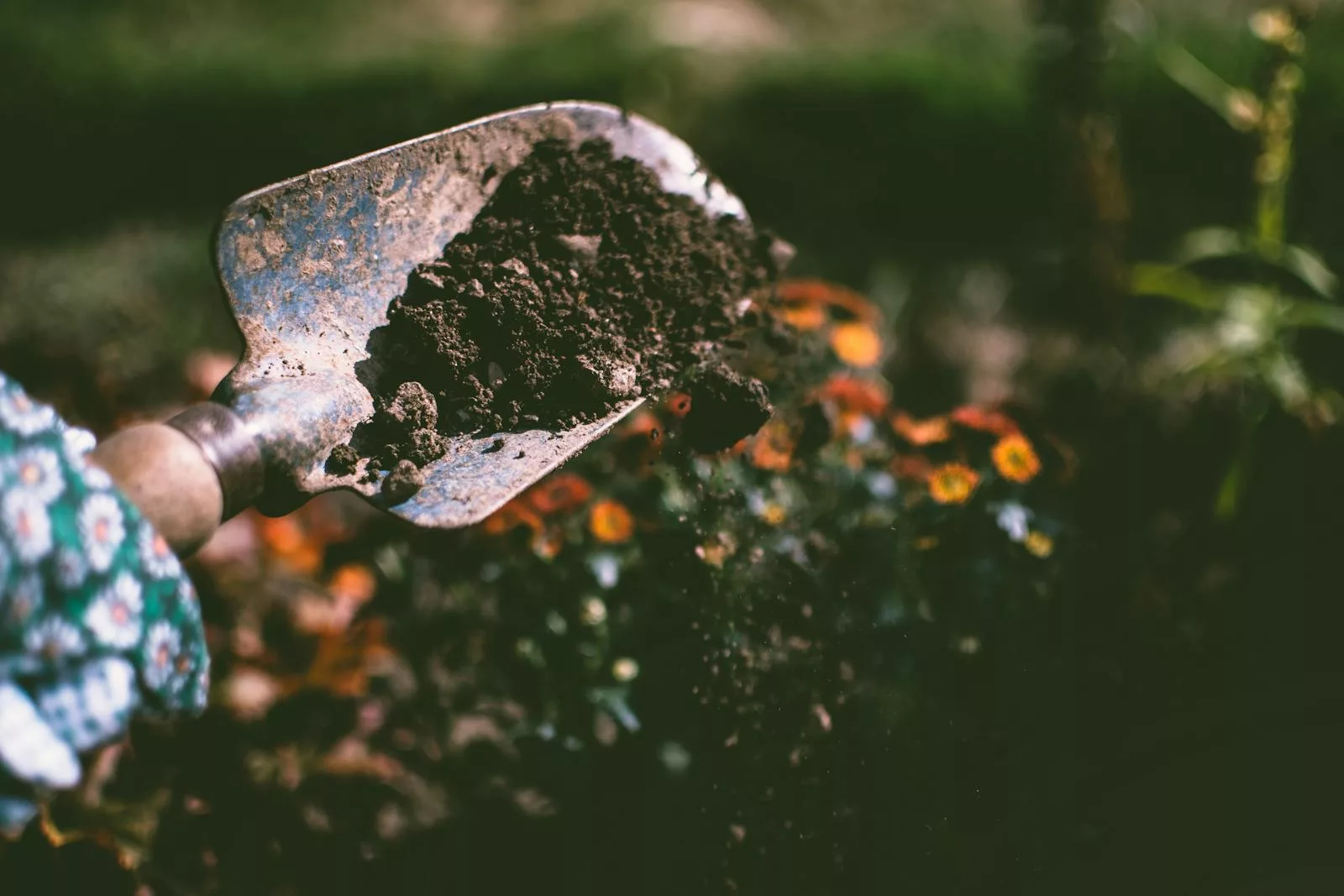Gardening is much more than a hobby or a way to grow fresh produce—it’s a therapeutic activity that benefits both physical health and mental well-being. Whether tending to flowers, cultivating vegetables, or simply pulling weeds, gardening offers a unique combination of physical exercise and mental relaxation. As a low-impact yet highly engaging activity, it provides a way to stay active, connect with nature, and enjoy a sense of accomplishment.
In our fast-paced, screen-dominated world, gardening offers a much-needed escape. The rhythmic tasks of planting, watering, and harvesting create a mindful experience, helping you unwind while staying physically engaged. Below, we explore 20 remarkable benefits of gardening for physical activity and mental relaxation, illustrating why this time-tested pastime is one of the best ways to nurture both body and soul.
1. Provides Low-Impact Exercise
Gardening is a form of low-impact exercise that involves activities like digging, planting, weeding, and watering. These movements engage multiple muscle groups, improve flexibility, and enhance joint mobility. Unlike high-impact workouts, gardening is gentle on the body, making it an ideal activity for people of all ages and fitness levels.
For older adults or individuals with limited mobility, gardening offers an accessible way to stay active without the risk of overexertion. The repetitive yet varied motions ensure that your body stays engaged in a balanced and functional manner.
2. Improves Cardiovascular Health
Gardening may not seem like traditional exercise, but it provides an excellent cardiovascular workout. Tasks such as raking, hoeing, and shoveling get your heart rate up, promoting better circulation and strengthening your cardiovascular system.
Over time, gardening can help reduce the risk of heart disease, lower blood pressure, and improve overall endurance. Even spending just 30 minutes in the garden can contribute to a healthier heart, making it an enjoyable way to support your physical health.
3. Encourages Functional Fitness
Functional fitness involves movements that mimic everyday tasks, and gardening is a perfect example. Activities like squatting to plant seeds, reaching to prune branches, or lifting heavy soil bags improve balance, coordination, and core strength.
These practical skills translate directly into daily life, making it easier to carry groceries, climb stairs, or perform other routine activities. By engaging in gardening regularly, you build a strong, functional body that supports independence and mobility.
4. Boosts Vitamin D Levels
Sunlight exposure is one of the best ways to boost vitamin D levels, and gardening provides a natural opportunity to soak up the sun. Vitamin D is essential for healthy bones, a strong immune system, and mood regulation.
Spending just 20-30 minutes in the garden can significantly improve your vitamin D levels. However, it’s important to balance sun exposure with skin protection by wearing sunscreen or gardening during cooler parts of the day.
5. Burns Calories
Gardening is a surprisingly effective way to burn calories. Digging, weeding, and other gardening tasks can burn between 200-400 calories per hour, depending on the intensity of the activity.
This makes gardening a productive alternative to hitting the gym, offering physical fitness benefits while also beautifying your outdoor space or growing fresh produce. Whether you’re creating a flower bed or planting vegetables, gardening helps you stay active while achieving something tangible.
6. Strengthens Muscles
Gardening involves lifting, digging, and repetitive movements that help strengthen various muscle groups. These activities engage your arms, legs, back, and core, improving both muscle tone and endurance.
Over time, regular gardening can help build stronger muscles that support better posture and reduce the risk of injuries. This benefit is especially valuable for older adults, as maintaining muscle mass becomes increasingly important with age.
7. Enhances Flexibility and Joint Health
Gardening requires a wide range of motions, such as bending, stretching, and reaching, which promote flexibility and joint mobility. These movements help keep your body limber and reduce stiffness, especially for those with sedentary lifestyles.
For individuals with arthritis or joint pain, gardening can serve as a gentle form of physical therapy. By consistently engaging in these motions, you support better joint health and reduce discomfort over time.
8. Promotes Better Sleep
The combination of physical activity and time spent outdoors makes gardening an excellent way to promote better sleep. The physical exertion helps tire your muscles, while the calming effects of nature reduce stress and prepare your mind for rest.
Gardening during the day can also help regulate your circadian rhythm, encouraging a natural sleep-wake cycle. With regular gardening, you may find it easier to fall asleep and enjoy more restorative rest at night.
9. Reduces Stress and Anxiety
Gardening is a proven stress reliever. The repetitive, soothing tasks involved in gardening—like planting seeds or watering plants—help lower cortisol levels, the hormone associated with stress.
Additionally, the simple act of being surrounded by greenery has a calming effect on the nervous system. Studies have shown that gardening can significantly reduce feelings of anxiety and promote emotional balance, making it a powerful tool for mental relaxation.
10. Boosts Mood and Fights Depression
Gardening has a profound impact on mental health, acting as a natural antidepressant. Soil contains a beneficial bacterium, Mycobacterium vaccae, that stimulates serotonin production, improving mood and emotional resilience.
The sense of accomplishment from nurturing plants and watching them grow also provides a deep sense of satisfaction. For individuals struggling with depression, gardening offers a way to reconnect with life and find joy in small, meaningful activities.
11. Encourages Mindfulness
Gardening naturally cultivates mindfulness by encouraging you to focus on the present moment. Whether you’re weeding, pruning, or planting, the tactile and sensory experience of gardening anchors your awareness in the here and now.
This meditative quality helps quiet the mind, reduce mental chatter, and foster a sense of calm. Over time, gardening can become a form of moving meditation, providing both mental clarity and emotional balance.
12. Connects You with Nature
Gardening is an excellent way to reconnect with nature and enjoy its restorative benefits. The sights, sounds, and smells of the natural environment provide a grounding experience that reduces mental fatigue and boosts emotional well-being.
For those who live in urban settings or spend much of their time indoors, gardening offers an opportunity to experience the healing power of the outdoors. This connection with nature enhances both mental and physical health.
13. Improves Cognitive Function
Gardening involves planning, problem-solving, and critical thinking, all of which stimulate the brain and improve cognitive function. Tasks like designing a garden layout or managing soil conditions keep your mind sharp and engaged.
For older adults, gardening can help reduce the risk of cognitive decline and conditions like Alzheimer’s disease. The mental stimulation provided by gardening supports lifelong brain health and keeps you mentally agile.
14. Builds Patience and Resilience
Gardening teaches the value of patience and persistence, as plants take time to grow and flourish. The process of nurturing a garden encourages you to stay committed, even when results aren’t immediate.
This mindset can translate to other areas of life, helping you approach challenges with calm determination. Gardening fosters resilience and reminds you of the rewards that come with consistent effort and care.
15. Provides a Sense of Accomplishment
Few things are as satisfying as watching your garden thrive. Successfully growing flowers, vegetables, or herbs provides a profound sense of accomplishment. This tangible result boosts self-esteem and reinforces your ability to nurture and create.
For those recovering from stress or emotional challenges, the sense of achievement gained from gardening can be deeply empowering. It serves as a reminder of your capabilities and strengths.
16. Encourages Healthy Eating
Gardening makes it easy to incorporate fresh, homegrown produce into your diet. Fruits, vegetables, and herbs grown in your garden are rich in nutrients and free from harmful chemicals.
The effort involved in growing your own food also makes you more mindful of your eating habits. This connection to the food you consume can lead to healthier choices and a more nutritious diet overall.
17. Fosters Social Connections
Gardening can be a social activity, whether you participate in a community garden, attend gardening workshops, or exchange tips with neighbors. These interactions create a sense of belonging and help build meaningful relationships.
For individuals who feel isolated, gardening offers a way to connect with others and share the joy of cultivating plants. This sense of community supports both mental and emotional health.
18. Enhances Creativity
Designing a garden involves creative decision-making, from choosing plant arrangements to selecting color schemes. This creative expression stimulates the mind and provides a fulfilling outlet for artistic energy.
Gardening allows you to experiment, try new ideas, and create a space that reflects your personality and vision. This creative process adds an extra layer of enjoyment to the experience.
19. Promotes Environmental Awareness
Gardening encourages eco-friendly practices, such as composting, conserving water, and planting pollinator-friendly flowers. By engaging in these activities, you contribute to the health of the planet and develop a deeper understanding of sustainability.
This awareness benefits both your garden and the larger environment, making gardening a meaningful and impactful hobby.
20. Serves as a Form of Therapy
Horticultural therapy, which uses gardening to improve mental health, is widely recognized as an effective treatment for conditions like PTSD, depression, and anxiety. Even outside formal therapy, gardening provides a therapeutic experience through physical activity, nature exposure, and a sense of purpose.
Spending time in the garden helps you process emotions, reduce stress, and find peace, making it a powerful tool for self-care and personal growth.
Conclusion
Gardening offers a perfect blend of physical activity and mental relaxation, making it one of the most rewarding pastimes you can adopt. From improving cardiovascular health and muscle strength to reducing stress and boosting mood, the benefits of gardening are vast and transformative. Whether you have a sprawling backyard or a few pots on a balcony, starting a garden can enrich your life in countless ways. By integrating gardening into your routine, you cultivate not just plants but also a healthier, more balanced life.




